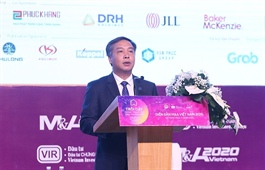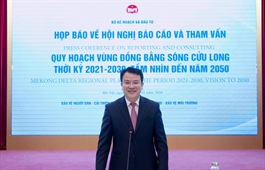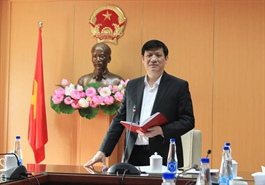Key elements to secure successful M&A deals
Key elements to secure successful M&A deals
Experts at the Vietnam M&A Forum 2020 dive into the key elements of successful deal execution, especially in fast-moving consumer goods and property, and discover how emerging technology trends could reshape the landscape.
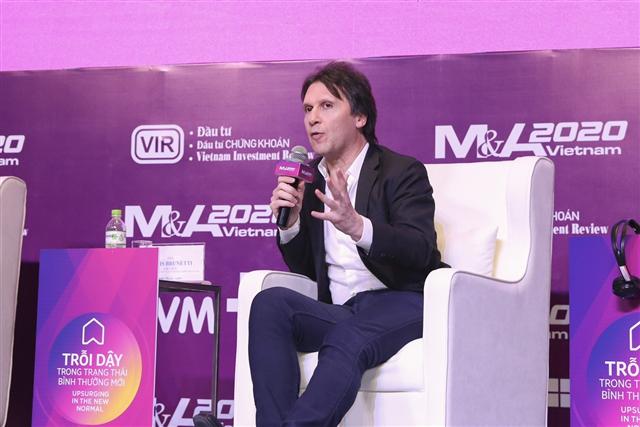
Denis Brunetti, president, Ericsson in Vietnam, Myanmar, Cambodia, and Laos
|
The miracle of Vietnam is that GDP growth in previous years was over 6 per cent and this year was over 2 per cent. Vietnam is emerging as an appealing investment spot in the region, not only because of affordable labour costs but also because of macroeconomic and political stability. 5G deployment is slated to ramp up this year, paving the way for the massive adoption of 5G in various sectors. I think this move will definitely benefit all digitally-led enterprises as well as the M&A sector.
Vietnamese enterprises have to adapt to a more digitally-led transformation in a bid to take advantage of major free trade agreements, such as the EU-Vietnam Free Trade Agreement (EVFTA), the Regional Comprehensive Economic Partnership (RCEP), or the Comprehensive and Progressive Agreement for Trans-Pacific Partnership (CPTPP). In order to make the country an attractive investment destination and M&A destination for international investors, digital platforms must be deployed and improved, including blockchain and other emerging trends.
Digital platforms are being improved and deployed, including blockchain, the hard workforce. On the other hand, when I first set foot in Vietnam in 1996, the workforce was full of working men, which is in stark contrast with the current labour force now. At the moment, Vietnam is very diverse in its workforce, and the gap between men and women is significantly narrowing.
Apart from pricing, transforming and improving business, gender diversity is also a crucial factor in the M&A environment. Talking about M&A, we all think about pricing, transforming, and improving businesses, but gender diversity and increasing the women workforce are very important.
Despite our rich experience in the field and our history, we still define ourselves as a “startup”, with our “intrapreneurship mindset”, because we always have to renew ourselves. Even though we have been established 44 yearsaggo, we believe that at a certain point, we have to transform digital by cooperating with other companies, with partners, thereby progressing.

Danny Le, general director, Masan Group
|
25 years ago, Masan focused on animal feed. After that, we saw the potential in consumer goods so we decided to branch into the seasoning and beverage fields. Masan has gained know-how to develop these products and secure fast-paced growth.
In addition, Masan also develops a product line horizontally with a variety of products. Most recently, Masan has acquired the Net brand after studying the market signals. Masan aims to serve customers and end users.
We implement our new strategy via M&A transactions to capitalise on consumer demand. We conduct M&A with both upstream and downstream businesses. This strategy is applied not only in Vietnam but also markets like Europe.
Masan has also faced some challenges related to legislation and cultural integration after M&A deals. Thus, the group has set up a team to monitor risks after M&A.
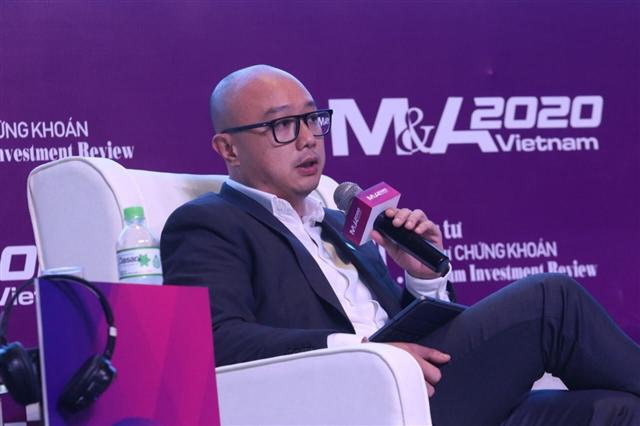
Nguyen Thai Phien, senior director, Corporate Finance, Novaland
|
Unlike other investors, Novaland relies on M&A deals to secure growth and development. We have acquired land sites from other investors to develop projects. Last week, we bought a 286-hectare project in Dong Nai worth $1 billion. Novaland has a plan to transform this project into a tourism ecosystem to bring more added value for customers.
Besides opportunities, there are three main challenges for conducting M&A deals in the real estate field. The first one is legal documents on real estate, and the legal implementation of the project. The second is financing. The State Bank of Vietnam only allows Vietnamese banks to sponsor less than 5 per cent of stock trading. Although this regulation is right, businesses have to cope with many challenges when applying it into their deals. On the side of buyers, we use many tools and work with many foreign partners.
The third challenge is the publication of a deal. Publication and communication are always challenging for us, making many precise experiences. After M&A, stock value decreases while the value of the companies remains. Therefore, we have to be transparent and digital communications for branding would help.










